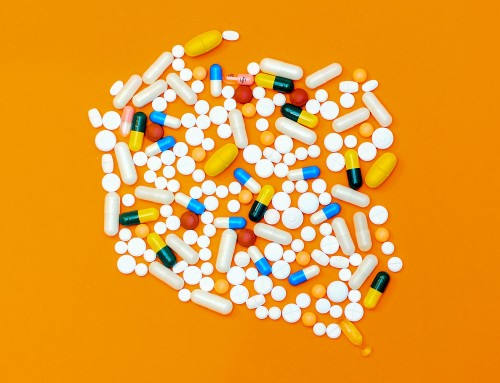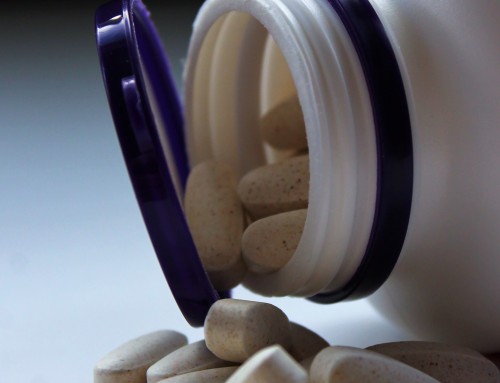Top 5 Vitamins that can support the Immune System
Over the last few years internet searches for supplements to help the immune system have soared with millions of people looking to improve their immunity to infections and disease. The immune system is composed of a huge network of organs, tissues, proteins, chemicals and cells that adapt to help the body fight and defend itself against foreign and invading organisms.
This article aims to cover the main supplements that you can take that might help your immune system to fight off infection or disease. **Please note that no supplement has been proven to cure Covid or any other viruses, and consuming supplements are only needed when deficient.**
Vitamin D
Vitamin D Is known to have several benefits including an increase in bone health by allowing an increase of calcium absorption (1), it has also been found to be key to optimal muscle function (2). The importance of Vitamin D in athletes whether professional or amateur has been noted as being vital for performance (5).
Among these benefits it has also been found that it can regulate immune function (2) and mostly helps to modulate inflammatory response (3).
There have been numerous studies that have linked low Vitamin D levels with a number of autoimmune diseases such as rheumatoid arthritis, type 1 diabetes, systemic lupus erythematosus, and inflammatory bowel disease (6-10). One Study concluded that the cells of the immune system are capable of synthesising and responding to vitamin D, (11).
Vitamin C
The reasons why vitamin C is effective for immunity is that it can help improve the production of white blood cells (15), as well as protecting them from free radical damage.
Vitamin C has been suggested to help reduce blood pressure (13). Part of Vitamin C is citic acid which has been found to reduce physical fatigue (16). The reason for this is due to citric acid being a major component of the tricarboxylic acid (TCA) cycle. TCA cycle is the process of converting carbohydrates, fats and proteins into carbon dioxide and water (17).
By increasing citric acid it activates the TCA cycle and in turn speeds up ATP production thus replenishing energy. It is also known to be a powerful antioxidant (12), which is known to reduce the risk of cardiovascular disease.
People with a vitamin C deficiency have been known to contract scurvy (14). The common effects of scurvy include a weakening of collagenous structures, resulting in poor wound healing, and impaired immunity.
Zinc
Zinc has been identified as a factor for many enzymes responsible for the synthesis, storage and release of insulin (18). Other studies have observed an improvement with wound healing and muscle cramps (19).
When it comes to the Immune system Zinc has been found to be beneficial in a number of ways, from the very start of the immune response and forming the cells required (20), to the production and effectiveness of leukocytes (white blood cells) (21). Having a zinc deficiency has been found to have adversely affected the growth and function of T and B cells (22).
Vitamin B6
The active form of vitamin B6 is known as P-L-P (23), which is stimulated by exercise (24). During exercise the body relies on the liver to produce glucose via glycogenolysis, for which vitamin b6 is essential for, and is an integral part of the glycogen phosphorylase enzyme and thus will provide energy to the bodies’ muscles (25).
Vitamin B6 helps chemical reactions in the immune system, helping it work better (26). Eating foods or taking supplements rich in vitamin B6 will help your body guard against infection
Vitamin B12
Research studies on vitamin B12 have found that it is required for red blood cell production (27), Protein synthesis and the repair and maintenance of tissue cells, (28).
This is why it can be beneficial to improving the immune system, as it can keep the body strong by ensuring there is enough oxygen for the immune system to thrive (29).
Summary
To ensure that your immune system has the best chance it can to fight off any infection or disease much more quickly and easily you need to ensure that you eat a well balanced diet consisting of whole grain starchy foods, lean protein, healthy fats and plenty of fruit and vegetables and supplementation of these specific nutrients is needed when deficient in them.
The exception could be with vitamin D in the winter months where supplementation is recommended. However if you feel that you may be deficient in these vitamins, increasing those levels can be possible with supplementation.
References
1 – Holick, M. F. (2007). Vitamin D deficiency. New England Journal of Medicine,357(3), 266-281.
2 – Hamilton, B. (2010). Vitamin D and human skeletal muscle. Scandinavian journal of medicine & science in sports, 20(2), 182-190.
3 – Larson-Meyer, D. E., & Willis, K. S. (2010). Vitamin D and athletes. Current sports medicine reports, 9(4), 220-226.
4 – Gombart, A. F., Borregaard, N., & Koeffler, H. P. (2005). Human cathelicidin antimicrobial peptide (CAMP) gene is a direct target of the vitamin D receptor and is strongly up-regulated in myeloid cells by 1, 25-dihydroxyvitamin D3. The FASEB Journal, 19(9), 1067-1077.
5 – Zittermann, A. (2003). Vitamin D in preventive medicine: are we ignoring the evidence?. British Journal of Nutrition, 89(05), 552-572.
6 –Colotta, F., Jansson, B., & Bonelli, F. (2017). Modulation of inflammatory and immune responses by vitamin D. Journal of autoimmunity, 85, 78-97.
7 – Gombart, A. F., Pierre, A., & Maggini, S. (2020). A review of micronutrients and the immune system–working in harmony to reduce the risk of infection. Nutrients, 12(1), 236.
8 – Zmijewski, M. A. (2019). Vitamin D and human health.
9 Infante, M., Ricordi, C., Sanchez, J., Clare-Salzler, M. J., Padilla, N., Fuenmayor, V., … & Fabbri, A. (2019). Influence of vitamin D on islet autoimmunity and beta-cell function in type 1 diabetes. Nutrients, 11(9), 2185.
10 – Ricordi, C., Clare-Salzler, M., Infante, M., Baggerly, C., Aliano, J., McDonnell, S., & Chritton, S. (2019). Vitamin D and omega 3 field study on progression of type 1 diabetes. CellR4–repair, replacement, regeneration, & reprogramming, 7.
11 – Aranow, C. (2011). Vitamin D and the immune system. Journal of investigative medicine, 59(6), 881-886.
12 – Kalt, W., Forney, C. F., Martin, A., & Prior, R. L. (1999). Antioxidant capacity, vitamin C, phenolics, and anthocyanins after fresh storage of small fruits.Journal of Agricultural and Food Chemistry, 47(11), 4638-4644.
13 – Huang, A., Vita, J. A., Venema, R. C., & Keaney, J. F. (2000). Ascorbic acid enhances endothelial nitric-oxide synthase activity by increasing intracellular tetrahydrobiopterin. Journal of biological chemistry, 275(23), 17399-17406.
14 – Padayatty, S. J., Katz, A., Wang, Y., Eck, P., Kwon, O., Lee, J. H., … & Levine, M. (2003). Vitamin C as an antioxidant: evaluation of its role in disease prevention. Journal of the American College of Nutrition, 22(1), 18-35.
15 – Huijskens, M. J., Walczak, M., Koller, N., Briedé, J. J., Senden‐Gijsbers, B. L., Schnijderberg, M. C., … & Germeraad, W. T. (2014). Technical Advance: Ascorbic acid induces development of double‐positive T cells from human hematopoietic stem cells in the absence of stromal cells. Journal of leukocyte biology, 96(6), 1165-1175.
16 – Sugino, T., Aoyagi, S., Shirai, T., Kajimoto, Y., & Kajimoto, O. (2007). Effects of citric acid and L-carnitine on physical fatigue. Journal of clinical biochemistry and nutrition, 41(3), 224.
17 – Baldwin, J. E., & Krebs, H. (1981). The evolution of metabolic cycles.
18 – Hashemipour, M., Kelishadi, R., Shapouri, J., Sarrafzadegan, N., Amini, M., Tavakoli, N., … & Poursafa, P. (2009). Effect of zinc supplementation on insulin resistance and components of the metabolic syndrome in prepubertal obese children. Hormones (Athens), 8(4), 279-285.
19- Kugelmas, M. (2000). Preliminary observation: oral zinc sulfate replacement is effective in treating muscle cramps in cirrhotic patients. Journal of the American College of Nutrition, 19(1), 13-15.
20 – Chavakis T, May AE, Preissner KT & Kanse SM (1999) Molecular mechanisms of zinc-dependent leukocyte adhesion involving the urokinase receptor and β2-integrins. Blood 93, 2976–2983
21 – Rink, L. (2000). Zinc and the immune system. Proceedings of the Nutrition Society, 59(4), 541-552.
22 – Prasad, A. S. (2008). Zinc in human health: effect of zinc on immune cells. Molecular medicine, 14(5), 353-357.
23 – Ubbink, J. B., Vermaak, W. J., van der Merwe, A., & Becker, P. J. (1993). Vitamin B-12, vitamin B-6, and folate nutritional status in men with hyperhomocysteinemia. The American journal of clinical nutrition, 57(1), 47-53.
24 – Manore, M. M. (2000). Effect of physical activity on thiamine, riboflavin, and vitamin B-6 requirements. The American journal of clinical nutrition, 72(2), 598s-606s.
25 – Manore, M. N., Leklem, J. E., & Walter, M. C. (1987). Vitamin B-6 metabolism as affected by exercise in trained and untrained women fed diets differing in carbohydrate and vitamin B-6 content. The American journal of clinical nutrition,46(6), 995-1004.
26 – Chandra, R. K., & Sudhakaran, L. (1990). Regulation of immune responses by vitamin B6. Annals of the New York Academy of Sciences, 585(1), 404-423.
27 – d’Onofrio, G., Chirillo, R., Zini, G., Caenaro, G., Tommasi, M., & Micciulli, G. (1995). Simultaneous measurement of reticulocyte and red blood cell indices in healthy subjects and patients with microcytic and macrocytic anemia. Blood,85(3), 818-823.
28 – Fenech, M. (2001). The role of folic acid and vitamin B12 in genomic stability of human cells. Mutation Research/Fundamental and Molecular Mechanisms of Mutagenesis, 475(1), 57-67.
29 – Mikkelsen, K., & Apostolopoulos, V. (2019). Vitamin B12, folic acid, and the immune system. In Nutrition and immunity (pp. 103-114). Springer, Cham.




